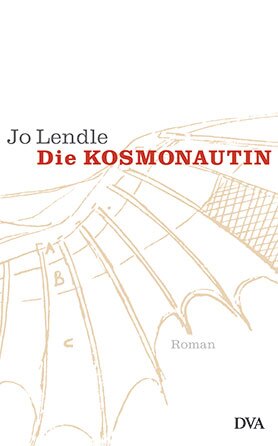Fiction
Jo Lendle
Die Kosmonautin
[The Cosmonaut]
Jo Lendle
Die Kosmonautin
[The Cosmonaut]
This book was showcased during the special focus on Portuguese: Brazil (2007 - 2008).
Review
A trip to the moon. Who doesn’t think of all the heroic images, famous steps, and even more famous men? Humanity triumphed over outer space, and from the 60s onward progress flew skyward. In his first novel, The Cosmonaut, Jo Lendle strikes a more restrained tone. His heroine Hella takes a trip to the moon in place of her deceased son Tobi, who had won the trip in a sweepstakes. Unheroically, she takes off in her rickety car—but whereto, actually? She seems to be driving into the boundless expanse of the east; the desolate, lonely path looks as if it could be the moon itself. Neither the reader, nor Hella, knows exactly where the journey will end. Is it a journey to the self, a wild adventure, a way to deal with her grief over Tobi’s death—or an escape from it?
The first part of the novel consists of Hella’s seemingly endless journey through the steppe. She loses all sense of time and space, feeling the weightlessness that lies ahead as she races spellbound onwards. The landscape is dismal, reminiscent of those "countless ends of the world. Extra-terrestrial” is all that comes to her mind, “a place to get lost”. The dynamic force that soon will launch her into the sky typifies her journey: "Even after she’d gotten out, everything kept moving. She couldn’t decide whether it was the car’s vibrations clinging to her, or the relentless shuddering of the world. In the end, it was surely only her who was trembling.”
What exactly is Hella searching for? The faceless protagonist has been traveling through the expansive east, but thus far we know nothing about her past. In the chapter, "Ring Finger," she is given a biography. Naming the chapters after the five fingers seems as unreal as Hella’s journey into the unknown. “What’s chasing her? She felt as if she was making a huge mistake, dispossessed, neglected, ridiculed. […] How was it possible to be here? On somebody else’s journey, because hers was finished.” "Hella’s life has lost all meaning. The end of her personal history is marked by the death of her thirteen year old son, Tobi, who was obsessed with outer space, and was killed in an accident while escaping from the police. She leads an isolated life: Her friends turned away from her, Tobi is dead. What lives on are the memories of her son, his quirk for space travel, small anecdotes from his childhood. That’s all.
Jo Lendle is a close observer; he creates a sober image of Hella with suggestive, impressionistic strokes rather than long explanations. The seemingly apathetic Hella seems made of flesh and blood only when it comes to Tobi and the ensuing romance with Adam. Lendle’s narrative style is sober and concrete, but a great sense of compassion evolves from her tentative attraction to Adam in the bleak environs of the space station.
After a seemingly infinite journey, Hella arrives at the space station, which looks like one of those films shot during the era of the first flights to the moon, like a yellowed photograph. Even the people inhabiting the station don’t seem from our era, but they welcome Hella with maternal warmth and hospitality. Maya Ivanova, for example, cooks for her, takes care of her, and helps make sure Hella feels at home: "She felt taken care of here without being able to say why.” The others at the station are curious about Hella and accompany her through the meticulously planned days prior to the launch. Or is it weeks, months? Who knows?
At the end of the chapter, “Index Finger,” Hella has a virtually biblical experience at the end of the long countdown: “And now, as she sat here with her eyes closed, she experiences in this moment everything in fast forward, from Adam and Eve onwards. Indeed, the whole history of the world appears before her eyes, generations race by blurring beyond recognition, a gallery of ancestors merged into a mad flip-book of wriggling bodies, temples being destroyed, reconstructed, and destroyed again, thunderbolts raining […] and finally when the time came for her to be born, she saw a reflection of fire beneath her outside the window, the engines had ignited." Here Lendle’s style is powerful and wide-ranging; he draws us into his orbit, and is able to provoke a similar longing to experience a flight to the moon.
To the very end, Hella’s secret is never quite revealed. Why did she take the trip to the moon? Was it a vague revenge for her son’s death, which in her quiet desperation could only be directed towards the moon? Where does the journey lead her? To the moon, of course, but where really? Adam comes close to figuring it out: “Everybody can see it’s not that you don’t want to go there, you want to leave.” One thing is certain; flying to the moon isn’t her dream. She takes the trip for her son, who couldn’t imagine anything more fantastic than that. Her dreams are over.
Translated by Zaia Alexander


